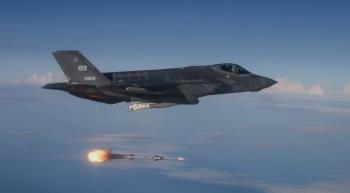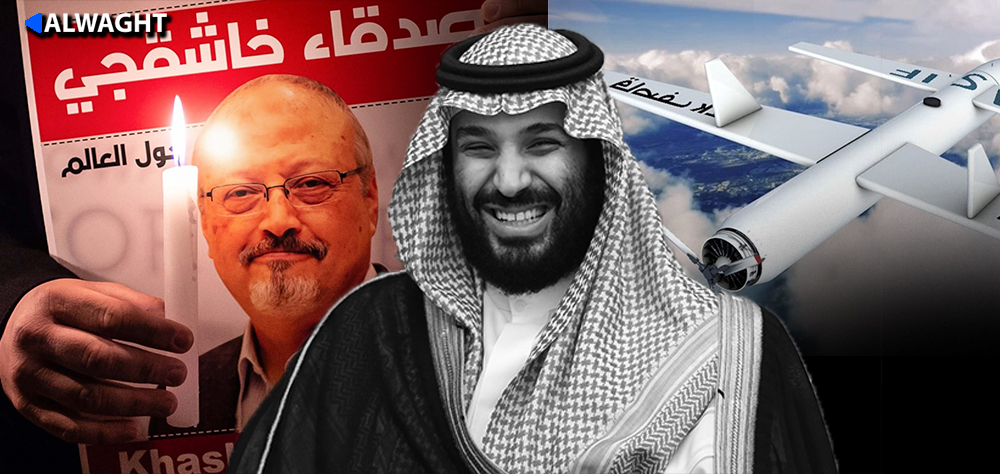Alwaght- While Riyadh is in the middle of confusion caused by the frequent Yemeni retaliatory missile and drone attacks and also the Crown Prince Mohammed bin Salman is hit by the misfortune of revival of assassination case of his outspoken Jamal Khashoggi by his own allies in Washington, the Saudi court is talking about traffic of diplomatic visits by Jordanian, Bahraini, and Malaysian delegations to Arab kingdom, all to depict the conditions normal and under control in the country.
Government media said that the Jordanian king, Bahraini crown prince, and Malaysian prime minister are planning meetings with the de facto ruler bin Salman who over the past days did not appear on the media.
The point is that these foreign visits to the Saudi capital bear symbolic and promotional, and not political, significance.
Bin Salman seeks credit regain
Certainly one of the goals of Riyadh in hosting high-ranking officials of other countries and highlighting the foreign meetings of bin Salman at the present time is to decrease pressures on him after the release of the secret report of US intelligence agencies on the assassination of Jamal Khashoggi and Bin Salman’s direct role in the murder.
Khashoggi, a critic of bin Salman and columnist at the Washington post, was killed by a hit squad Turkey says apparently sent by Prince Mohammed when the victim went to his country’s consulate in Istanbul on October 2, 2018. His body was “dismembered” and never found.
Prince Mohammed has seized every opportunity to his own way to the throne since 2017, when he in an overnight coup replaced his powerful cousin Mohammed bin Nayef as crown prince. Over the past four years, he did not survive severe criticism of his opposition in the royal ranks both at home and abroad.
With Joe Biden's assumption of power at the White House, bin Salman's aspirations were potentially jeopardized as the new US leader promised to review Washington's relations with Riyadh and try to put pressure on the absolutely-ruled monarchy to ease the repressive atmosphere introduced to the country by the crown prince since the moment he took the post.
Meanwhile, bin Salman's opponents and, even he himself, do not rule out the possibility of the White House turning its support to bin Nayef or even someone else like bin Salman's younger brother. In recent days, some Israeli media outlets, quoting the former Israeli cabinet minister Yossi Beilin, reported about possible removal of bin Salman and his replacement by bin Nayef.
One of the signs that set off the alarm bells for the naïve prince was the announcement of the removal by Biden of bin Salman from consultations between Washington and Riyadh. A fortnight ago, Biden asserted that he would only talk to King Salman, and not his son Mohammed, as part of the “counterpart to counterpart” diplomatic interaction.
Naturally, Saudi Arabia, by hosting high-ranking officials from other countries and highlighting diplomatic meetings with bin Salman, seeks to show the crown prince in control in the country as the international pressures continue to smash his credibility and acceptance for the leadership, even if he loses the endorsement of the US and other Western countries.
Pushing for saved face in Yemen war
From another dimension, the extensive visits of the officials from some Islamic countries to Saudi Arabia in the weeks leading up to the anniversary of the Saudi-led coalition’s invasion of Yemen in March 2015 are not meaningless. The six-year aggression on Yemen, causing one of the greatest humanitarian catastrophes of the present century with tens of thousands of victims and millions of displaced and starving Yemeni civilians, is now a reason for unprecedented international pressures on Riyadh to end the devastating bombing campaign and lift the suffocating sea, air, and ground blockade on Yemen.
Backed by the Western logistics and state-of-the-art arms flowing to the region, Saudi Arabia, the UAE, and a number of other Arab states with minor role in the war invaded Yemen in 2015 when the Yemeni people in a revolution toppled the Saudi minion President Abdrabbuh Mansour Hadi in a successful pro-independence motion.
On the other hand, as the Yemenis have made significant progress on the battlefield in repelling Saudi-affiliated mercenaries and intensifying airstrikes deep into Saudi territory by expanding their military capabilities, there is not much left of Riyadh’s once multi-member international military coalition. And with the withdrawal of the UAE from the battles and the US halt of support for military operations in Yemen, the Saudis are increasingly seeing themselves in a pickle.
In such circumstances, Riyadh would certainly advance foreign diplomacy to, even if in a limited scale, break from Isolation and decease the international strains calling for war stop. Trying to persuade the international and Muslim-level condemnation of the Yemeni strikes that are purely retaliatory in response to the unceasing Saudi bombardment and hostilities has always been on Riyadh agenda. As earlier this week Yemeni forces stepped up their attacks on vital Saudi sites, the Saudi rulers rushed to negotiate the case with the visiting officials.



























